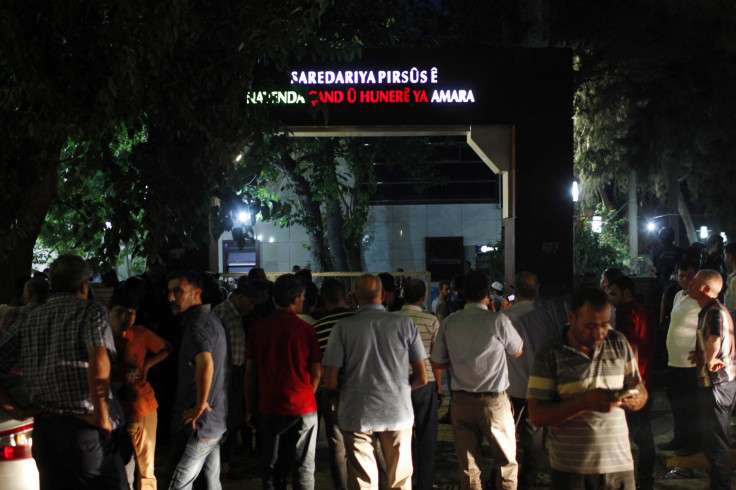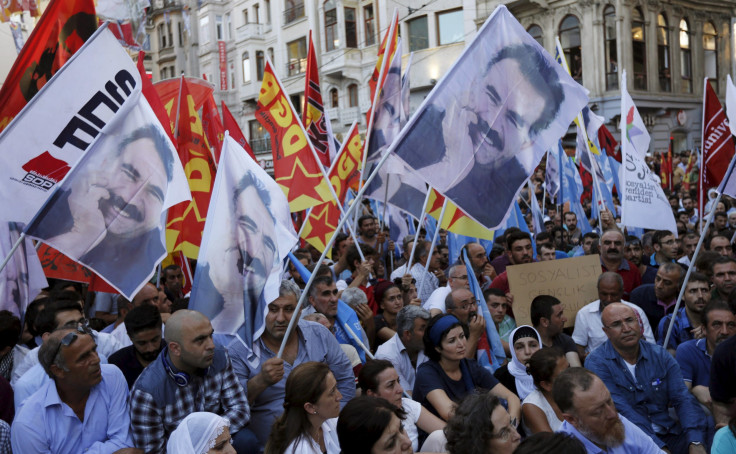Turkey Suruc Attack: PM Promises Increased Security Along Syrian Border Amid ISIS Fear

Turkish Prime Minister Ahmet Davutoglu called for increased security along the country’s border with Syria after a suicide bombing attack in the border town of Suruc killed at least 30 and injured 100 on Monday. The terror attack occurred at the Amara Cultural Park, where a group of young activists were planning to cross into Syria to help rebuild the Syrian Kurdish city of Kobani, which lies just across the border from Suruc.
Although no terrorist group has claimed responsibility for the attack, Turkish officials said, citing initial findings, that it might have been carried out by a female suicide bomber from the Islamic State group, which has been in a fierce battle with Kurdish fighters in Kobani. Over the last few months, many refugees have reportedly fled the fighting in Kobani and sought asylum in Suruc.
“Turkey has taken and will continue to take all necessary measures against Islamic State,” BBC quoted Davutoglu as saying at a news conference in the capital city of Ankara. “We have the willpower to find and certainly punish those who are responsible. … Measures on our border with Syria ... will be increased.”

Turkish government is currently said to be cracking down on ISIS militants by blocking websites and arresting suspected followers after previously being accused of turning a blind eye to the extremist group. According to Davutoglu, the country could further tighten its security in the wake of the deadly attack, which is believed to be carried out in “retaliation to the Turkish government's fight against terrorism.”
Meanwhile, hundreds of protesters in Istanbul and Ankara took to the streets on Monday, accusing President Recep Tayyip Erdogan of collaborating with ISIS. Some of the demonstrators chanted slogans against Erdogan and the ruling AK Party, saying: “Murderer Islamic State, collaborator Erdogan and AKP,” Reuters reported, adding that police in Istanbul had to fire teargas and water cannon when a demonstration turned violent.
© Copyright IBTimes 2024. All rights reserved.






















